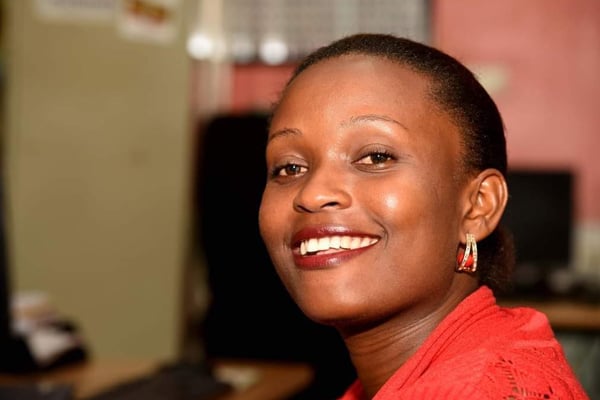Prime
Prioritising Fintech should be our key lesson from Covid-19 crisis

Damali Ssali
What you need to know:
- This Coronavirus crisis provides an opportunity for Fintech players to adapt and innovate financial inclusion solutions that support the most vulnerable and limit the long-term negative impact, as well as provide buffer against future similar crises.
The Covid-19 pandemic is literally changing the way we live.. Several countries have imposed stringent lockdown measures a way of combating the dreaded disease.
The Stay at Home restrictions have resulted into a slowdown of the social and economic life, with most activities coming to a near standstill and haunting images of empty streets from Lagos to Kampala, to Cape Town to Addis Ababa becoming part of the ‘new normal’.
Unlike other global crises, such as the 2008 financial crisis, or the 2014 commodities crisis, which put stress on capital markets and the macro and formal economies, the Covid-19 pandemic has impacted both formal and informal economies.
The lockdowns and curfews have had a disproportionate impact on the most vulnerable people of our societies; particularly women and the urban poor, who are mostly engaged in informal activities with a daily income, and do not have the luxury of working from home.
Majority of the daily income earners, as well as micro and small entrepreneurs, will not be able to meet their loan obligations because their sources of income have literally dried up.
Also, the collection of microfinance loans, which usually happens on a cash basis during weekly group meetings, has come to a halt as authorities have put in place strong social distancing guidelines.
Most of these people have not only lost their livelihoods, in this Covid-19 lockdown, but have also lost the capital that they had for their informal activities.
Such capital normally ranges from between $30 and $100. Therefore, because of this pandemic, a large section of the population is likely to fall further into poverty.
The silver lining, however, is that if there ever was a time for Fintechs to innovatively save the poor, it is now.
Fintechs seek to integrate technology to develop financial services with limited operational costs and capacity to bridge the financial inclusion gap.
The tenets of financial inclusion strive to remove barriers that exclude the poorest of the poor from participating in financial activities.
Therefore, Fintechs can also help mitigate the economic cost of lockdowns and avoid irreversible damage to the social economic fabric of our societies.
The World Bank notes that financial inclusion means that individuals and businesses have access to useful and affordable financial products and services that meet their needs, including transactions, payments, savings, credit, and insurance, delivered responsibly and sustainably.
The access to a transaction account is the first step towards financial inclusion because it allows the most vulnerable, including women and people with disabilities (PWDs), in society to save money, send and receive payments.
Therefore, it is the low cost Fintech solutions that hold the key to reaching out to more than 1.7 billion people worldwide, who are still excluded from formal financial services.
Fintech solutions can be developed to serve the most vulnerable of society through salient features such as mobile money, wallet to wallet, products and services payments, saving and credit facilities plus cross border remittances among others.
So far, mobile money developments seem to be the most utilised feature of Fintech worldwide. According to Statista Data, the global mobile money payment market had surpassed $1 trilion by the end of 2019.
The wide embrace of Fintech across Africa is significant and various reports indicate that mobile money has been one of the most revolutionary technologies launched in Africa in recent years.
It is a fact that digital financial services are the leading drivers of financial inclusion for the unbanked in Africa. As of 2018, Nigeria had approximately 172 million phone subscribers, which provided over 90 per cent of its citizen’s access to digital transactions on mobile phones.
Also, in Uganda, the 2018 Finscope report indicated a 78 per cent (14 million people) surge in the country’s financial inclusion rate, majorly supported by mobile money services.
Indeed, a lot of progress has been made towards financial inclusion, and 1.2 billion adults worldwide have got access to an account since 2011. However, according to data from Findex 1.7 billion people are still unbanked.
Therefore, despite the commendable strides made by Fintechs, a wide gap remains for women, PWDs, rural populations, as well as the young and urban poor.
Women are particularly disadvantaged because of the digital gender divide. A recent study, conducted in 86 per cent of low-income countries, found that more men own mobile phones than women.
The study also found that 58 per cent of these same countries have a gender gap of more than 5 per cent.
Unfortunately, this gender gap prevents women from fully and gainfully participating in the economic activities.
The fact is that even when women own a mobile phone, which can enable them to access FinTech services, they are generally less likely than men to connect to the internet. This detrimentally curtails the transformational impact that fintech can provide.
Based on the foregoing, financial inclusion will only be attained if Fintech operators focus their services and developments to solutions that can help women, PWDs, the low-income earners, the urban poor, the unbanked, the underbanked, as well as the small and medium-sized enterprises.
This Coronavirus crisis provides an opportunity for Fintech players to adapt and innovate financial inclusion solutions that support the most vulnerable and limit the long-term negative impact, as well as provide buffer against future similar crises.
It also gives the rest of us a chance to back and, where possible, present a case for prioritizing FinTech as the silver bullet for acing the financial inclusion challenge.
By prioritizing Fintech, we will have ensured that the most vulnerable people of our societies do not only survive the Covid-19 pandemic, but also, that they are given a fair chance to thrive after the pandemic.
Damali Ssali is a Financial Inclusion Enthusiast [email protected]




